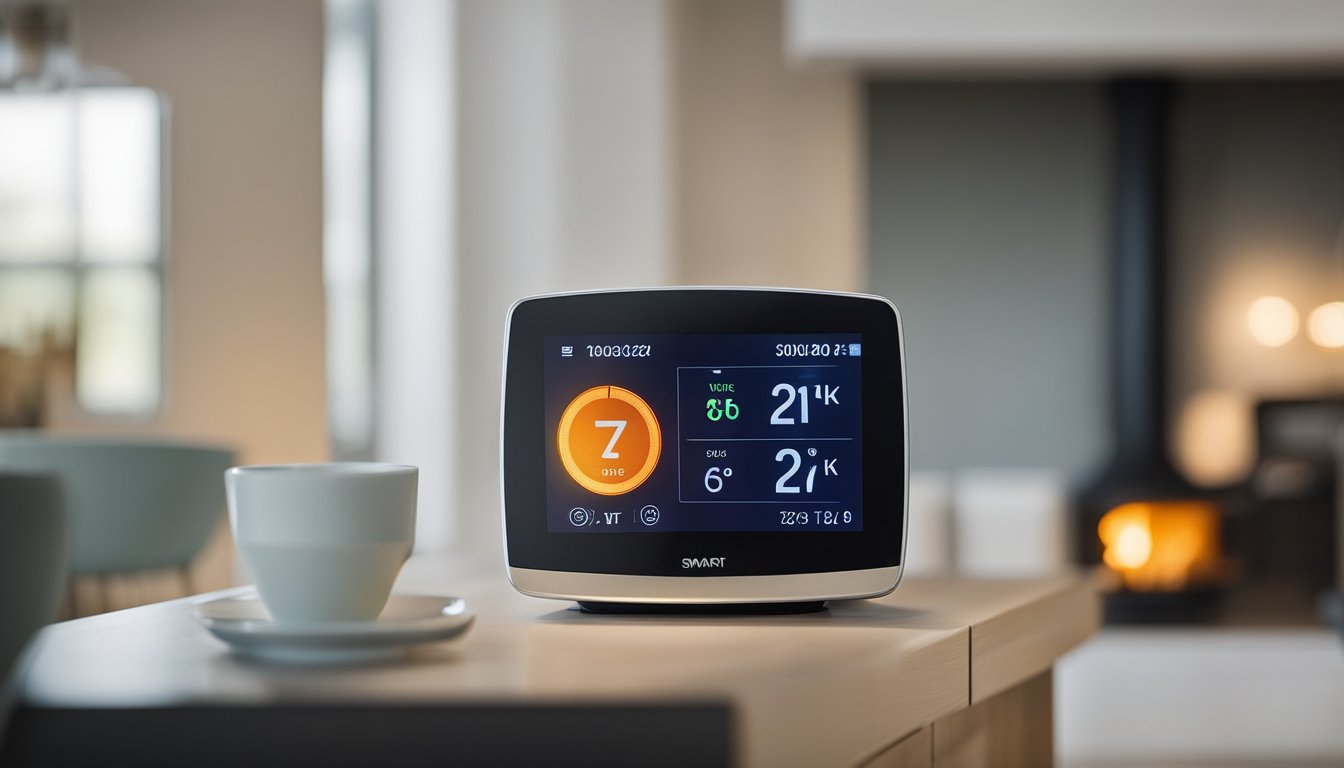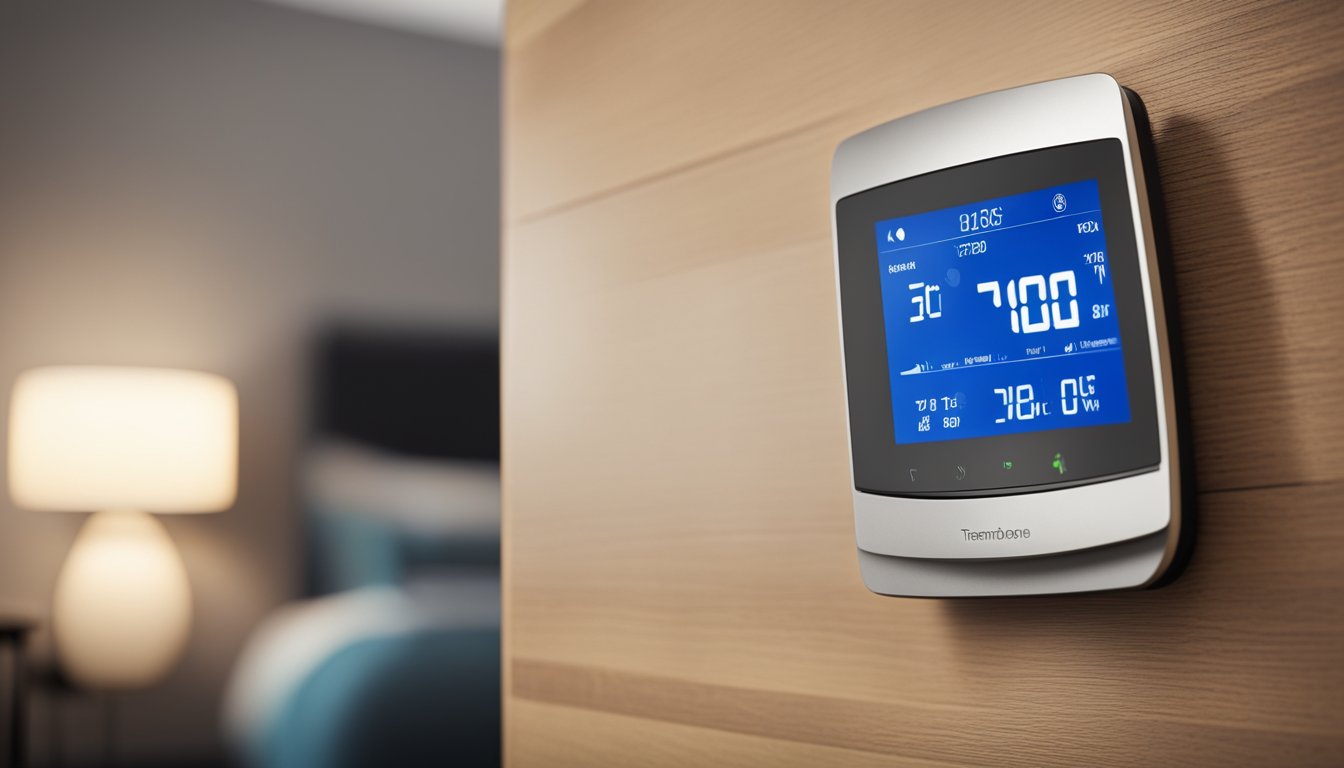Late updated: 05 Aug 2024 09:08
Written by: Eleanor Hartman
Benefits Of Smart Heating Controls In UK Homes: Enhancing Comfort and Efficiency
Smart heating controls are revolutionising home comfort across the UK. With the ability to manage your heating system remotely, these innovative devices offer both convenience and efficiency. They let us adjust our heating schedules from anywhere, ensuring our homes are warm when needed and saving energy when they are not.

The flexibility of smart heating controls allows us to customise our home environments to our exact preferences. Through simple apps on our smartphones or computers, we can monitor and change settings with ease. This not only enhances our comfort but also leads to significant savings on energy bills by reducing unnecessary heating.
Moreover, the environmental benefits of smart heating cannot be ignored. By only using energy when necessary and optimising our homes' heating patterns, we contribute to a more sustainable future. Smart heating devices are an essential part of modern living, combining advanced technology with economic and environmental advantages.
Key Takeaways
- Smart heating controls provide remote management and energy savings.
- Customised heating schedules enhance comfort and efficiency.
- They contribute to environmental sustainability by reducing energy waste.
Understanding Smart Heating Controls and Their Functions
Smart heating controls offer significant improvements in energy efficiency and convenience for UK homes. They utilise advanced technology to optimise heating systems, ensuring comfort while reducing energy waste and costs.
Components of Smart Heating Systems
Smart heating systems comprise various components designed to work together seamlessly. The most critical element is the smart thermostat, which allows users to set and adjust temperatures remotely using a smartphone app. We also have thermostatic radiator valves (TRVs) that control the heating in individual radiators, providing zoned heating.
Boilers, heat pumps, and underfloor heating units are commonly integrated with smart controls. Additionally, these systems may include sensors that measure indoor conditions and can even access weather forecast data to pre-emptively adjust heating.
The Role of Technology in Efficient Heating
Digital technology underpins the efficiency of smart heating controls. By automating adjustments, these systems can significantly reduce energy consumption. Features like geolocation enable the system to know when occupants are away or returning home, adjusting heating accordingly.
Automation is further enhanced through adaptive learning, where systems learn household patterns and optimise settings to maintain comfort with minimal energy use. The integration with the internet allows for real-time monitoring and adjustments, ensuring optimal performance at all times.
In conclusion, our smart heating controls combine advanced technologies and strategic components to offer enhanced energy efficiency, cost savings, and improved home comfort. Through sophisticated automation and thoughtful design, they represent a significant advancement in home heating systems.
Economic and Environmental Benefits of Smart Heating

Smart heating systems provide financial savings and environmental advantages through improved efficiency and granular control of home temperatures. These systems help reduce heating bills and carbon emissions while ensuring a comfortable living environment.
Reducing Energy Bills and Carbon Footprint
Investing in smart heating controls can lead to significant savings on energy bills. Devices like smart radiator valves and thermostats allow precise temperature settings, minimising energy waste. For instance, a smart radiator thermostat can cut down unnecessary heating when rooms are unoccupied.
By lowering energy consumption, we can reduce our carbon footprint. Efficient temperature control decreases greenhouse gas emissions, contributing to a more sustainable future. The initial investment, such as the cost of smart radiator valves, is quickly offset by the reduction in energy expenses and lower VAT rates on energy-efficient products.
Advantages of Zoned Heating and Temperature Control
Zoned heating offers tailored temperature control for different areas of the home. This means we can maintain a comfortable temperature in frequently used spaces while reducing heating in less-used rooms. Smart heating systems empower us to create multiple heating zones, each with its own settings and schedule.
Efficient temperature control can be achieved by using smart radiator valves in each zone. This allows for personalised comfort and significant energy savings. The ability to schedule heating according to our lifestyle reduces waste and optimises energy usage. This granular control translates into cost savings and a reduced carbon footprint, benefiting both our wallets and the environment.
Frequently Asked Questions

In this section, we address common queries on smart heating controls, covering benefits, cost savings, system integration, and more to help you make an informed decision for your UK home.
What are the benefits of installing a smart heating control system in my home?
Smart heating systems provide convenience and energy efficiency. You can adjust your home's temperature remotely via a smartphone or voice commands. Zoned heating allows different areas of your home to be heated individually, increasing comfort and saving energy.
How do wireless heating control systems compare to traditional ones?
Wireless heating controls offer greater flexibility and ease of installation compared to traditional wired systems. They eliminate the need for extensive wiring, and many models come with user-friendly apps for seamless operation. Additionally, wireless systems can be more easily integrated with other smart home devices.
In what ways can smart thermostats provide cost savings on energy bills?
Smart thermostats learn your household's routines and adjust heating schedules accordingly, ensuring that energy isn’t wasted. They can lower heating during periods when no one is home and increase it before you return, optimising energy use and reducing bills. Customisable temperature settings further enhance their efficiency.
Can smart heating controls integrate with other smart home systems?
Yes, many smart heating controls are compatible with a range of smart home systems, such as lighting, security, and voice assistants like Amazon Alexa or Google Home. This allows for a more cohesive and automated home environment, where multiple systems can work together to improve comfort and efficiency.
What should I consider when choosing a smart thermostat for my UK home?
When selecting a smart thermostat, consider factors such as compatibility with your heating system, ease of use, app functionality, and the availability of features like geofencing, adaptive learning, and multi-zone control. Additionally, look for models that have good customer reviews and reliable support.
Are there any disadvantages to upgrading to smart heating controls?
While smart heating controls offer many advantages, they can be more expensive initially compared to traditional systems. Installation may require professional help, adding to the cost. Additionally, smart systems rely on a stable internet connection, which could be a downside in areas with unreliable connectivity.